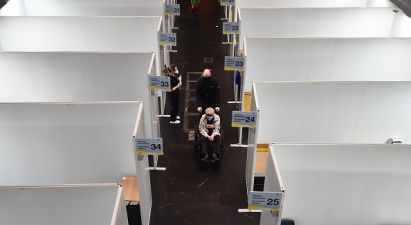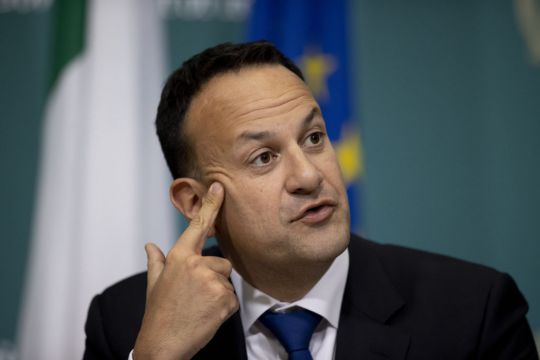Those who refuse an offer of the AstraZeneca Covid-19 vaccine will go to the back of the queue in Ireland, according to the Tánaiste.
Leo Varadkar told RTÉ radio’s Morning Ireland that those who refuse the vaccine “will have to wait until the end.”
Mr Varadkar said the vaccination rollout programme was “as solid as it can be” even if it had been changed 25 times. It was necessary to be agile and respond as changes occurred.
The possibility of extending the length of time between first and second vaccine doses was being examined, he added, but it was not going to happen to those who already had their first dose. It could be an option for younger people later.
Reopening pace
Four factors would determine the pace of the State’s reopening, Mr Varadkar said. These were the availability of vaccines, variants, case numbers and “the state of hospitals”.
At the end of April, the Government would sit down and develop the plan for May.
“What we're planning is to allow more outdoor activities, a phased reopening of retail and personal services,” Mr Varadkar said.
Services such as hairdressers and barbers will reopen in May, but most likely later than May 4th, he added.
Mr Varadkar said: “We are on track, the kids are back to school, the 5k rule is gone, we're building houses again - we are on track both to ease restrictions as planned from May 4th and to have over 80 per cent of people receiving their first vaccine by the end of June.”
Asked if he was being overly optimistic, the Tánaiste replied: “I'm forever being accused of optimism, but in a country full of pessimists and despondency it's nice to have someone who thinks the other way maybe.”
Hotel quarantine
Mr Varadkar also defended the Government’s mandatory hotel quarantine system, saying it was not as simple as the number of hotel beds available.

He warned there would be an issue of people coming into the country illegally through Northern Ireland.
The Government was also examining the possibility of fully vaccinated people not having to quarantine, but awaiting public health advice. Mr Varadkar acknowledged that he did have reservations and questions about hotel quarantine, but said there was no question that he was “in the pocket of businesses or the airlines” as had been alleged.
In response to the suggestion by businessman Patrick Coveney that there would be an economic cost to the country because of the system, Mr Varadkar said of course there would be an economic cost to be paid.
“If we are cut off for too long there will be economic consequences. That’s why the policy should not be a long term one. Any exit strategy will be based on the vaccination programme,” he said.







